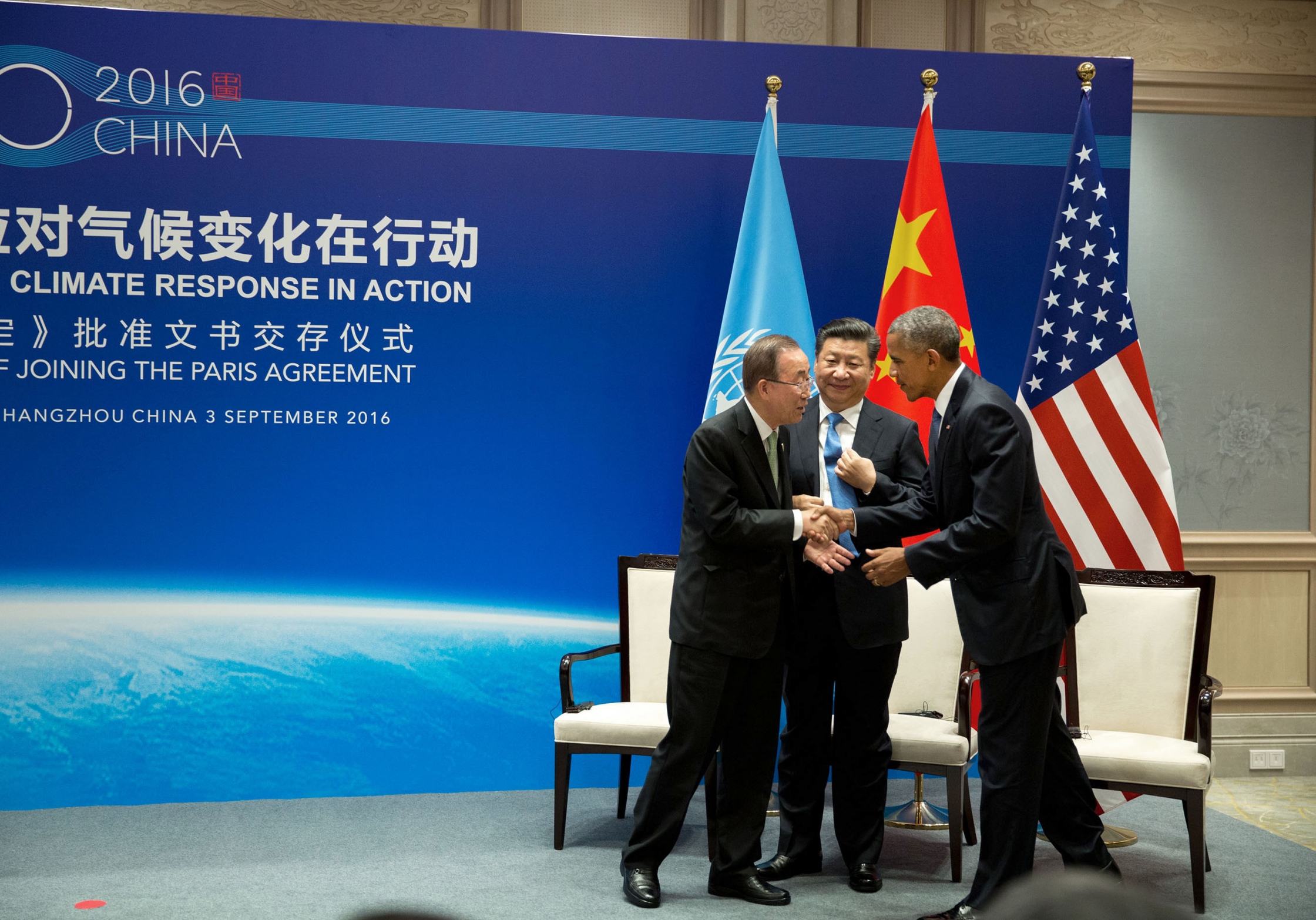
Rachael Shwom, Associate Director of Rutgers Energy Institute, Rutgers University
Sep 18, 2018
The challenges China faces in combating climate change are similar to those the U.S. faced.

Ruoxi Bi, MA Candidate, New York University
Nov 15, 2017
China plans to stop accepting imports of solid waste materials by end of 2017. This ban is expected to improve China’s domestic environmental and food safety issues. While the U.S. recycling industry is worrying about the economic damage of this policy change, the ban could trigger a positive change in U.S. domestic recycling policies.

Tao Wenzhao, Honorary Member of the Chinese Academy of Social Sciences; Fellow, CASS Institute of American Studies
Jun 13, 2017
The path of green and low-carbon development outlined in the Paris Agreement fits beautifully with China’s strategy to develop an ecological civilization. Hard-won and embraced by virtually every country, its spirit stands in stark contrast to the new US president’s lack of forward thinking.

Shen Dingli, Professor, Institute of International Studies, Fudan University
Jun 13, 2017
With the US now unwilling to pay the price of global leadership, other countries will seize both the opportunities and the responsibility to make the Paris accord work.
Beth Smits, PhD candidate, Paul H. Nitze School of Advanced International Studies (SAIS), Johns Hopkins University
Mar 22, 2017
Calling something a ‘win-win’ is one of Beijing’s favorite phrases, and whether it is derided as a slogan for China’s external relations or is explained as a core principle in China’s foreign policy approach, there is no doubt that it is firmly part of Beijing’s official lexicon. Finding situations where everybody wins is not easy, especially at the global level, but with green finance, China has come quite close to the fulfilling the true meaning of the term.
Madison Freeman, Project Assistant, Atlantic Council
Feb 27, 2017
With commitments to clean energy and combatting climate change wavering under the new US administration, leadership in renewable energy is quietly shifting away from the United States across the Pacific, where China is rapidly building its dominance.
Kristen McDonald, China Program Director, Pacific Environment
Oct 19, 2016
When a mine leaks heavy metals into drinking water supply in China, or when school children fall sick due to contaminated soil, or when a factory exceeds its pollution, whose job is it to respond? Kristen McDonald met with grassroots environmental groups around China to understand the challenges communities face, and the help that NGOs provide to local environmental protection bureaus.
Carla Freeman, Director of the Foreign Policy Institute of Johns Hopkins SAIS
Oct 18, 2016
Friction between Washington and Beijing may be growing, but the Paris climate change agreement stands out as a powerful example of what can be achieved when the U.S. and China cooperate. In the context of U.S. climate politics, cooperation with China may do little to persuade opponents of climate change policy whose views are rooted in denial of climate change. However, cooperation between the two countries in tandem with the Paris Agreement has engendered a sense among industry leaders that sustained competitiveness must involve adapting to a low carbon economy.

Matthew D. Johnson, Chair, East Asian Studies and Associate Professor, History, Grinnell College
Oct 07, 2016
Matthew Johnson discusses the environmental and political implications of the Paris Agreement as it is poised to take effect. Ratification of the Paris Agreement by the U.S. and China signifies an increasingly rare moment of visible cooperation between two environmentally impactful countries. What remains to be seen is how leadership gets allocated in terms of economic benefit and global rule setting.